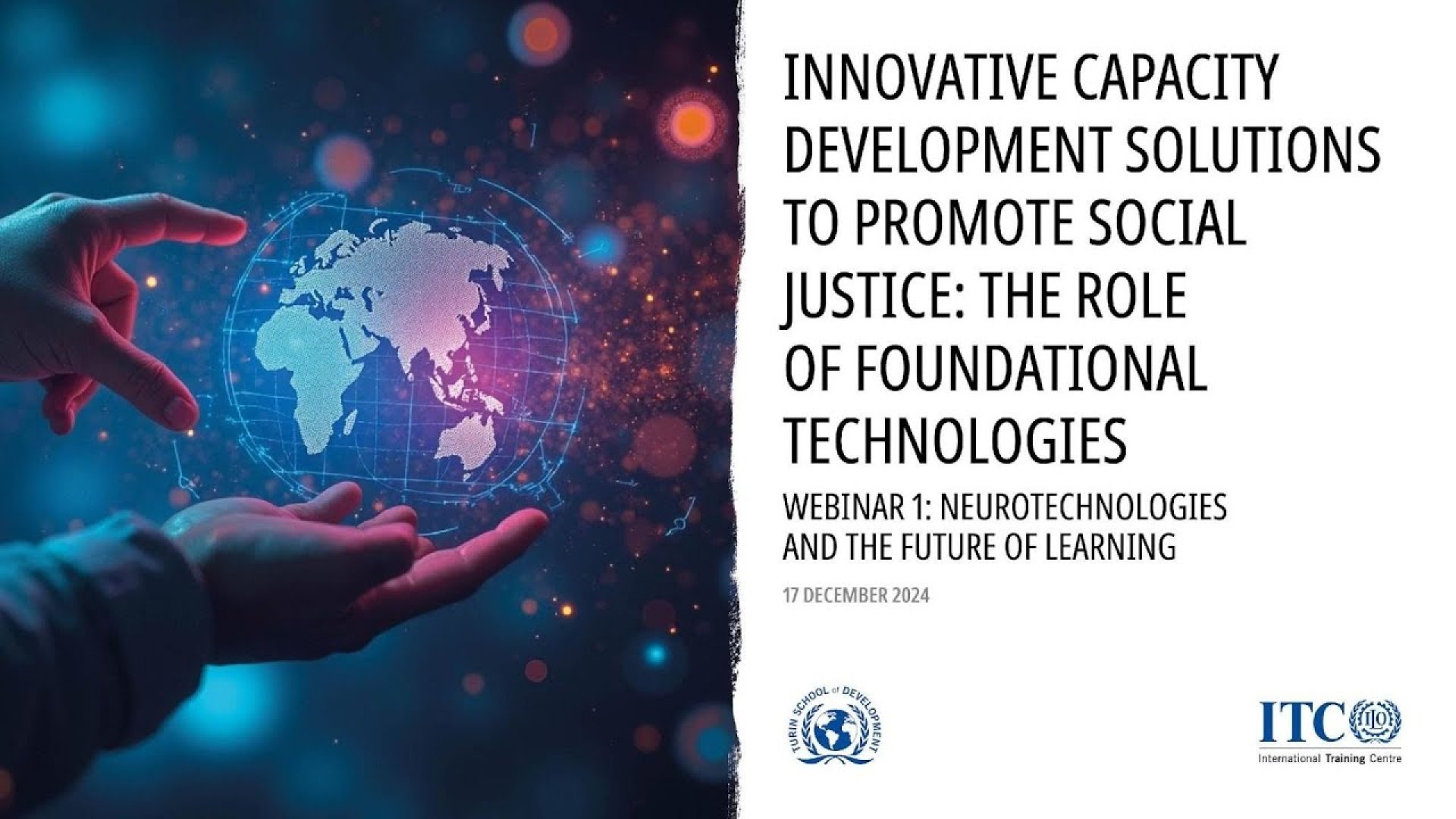Innovative Capacity Development Solutions to Promote Social Justice: Harnessing Emerging Technologies for Accelerated Social Development

Innovative Capacity Development Solutions to Promote Social Justice: Harnessing Emerging Technologies for Accelerated Social Development
A Webinar Series
Overview
Quantum technologies are reshaping global systems. Will your skills — and your institution — keep up?
Following the 2023 implementation assessment of the UN Sustainable Development Strategy Framework and the subsequent 2024 Pact for the Future, there is critical need for technological acceleration across development sectors. The UN Quintet of Change framework identifies five essential technical capabilities required system-wide: innovation architectures, advanced data systems, digital transformation methodologies, future foresight modeling, and applied behavioral science integration.
The ITCILO Innovation Sparks initiative creates a technical testbed for experimentation with emerging technologies that can scale social development outcomes. The Turin School of Development hosts this specialized webinar series examining the technical applications, integration challenges, and deployment strategies for cutting-edge technologies in capacity development contexts.
Structure
Each session features in-depth technical analysis of specific emerging technologies, focusing on:
- Technical capabilities and current research frontiers
- Integration methodologies with existing systems
- Implementation challenges and architectural considerations
- Regulatory and policy frameworks affecting deployment
- Ethical dimensions of technical implementation
Session 1: Neurotechnology and the Future of Learning
17 December 2024
Our initial technical forum provided deep technical exploration of neurotechnology systems and their computational applications for learning environments. The multidisciplinary panel examined technical specifications of various neural interface technologies—including invasive and non-invasive BCI systems, neurostimulation protocols, neuromodulation frameworks, and neural prosthetic architectures. Discussion encompassed technical implementation challenges, data architecture considerations, security protocols, and emerging regulatory frameworks concerning neural data protection.
Watch Session 1:
Session 2: The Impact of Quantum Technologies on the Future of Learning & Capacity Development
This advanced technical session will examine how quantum computing architectures are transforming learning and capacity development systems. The session will feature technical perspectives from both quantum research and practical implementation domains. It features a keynote by Ms. Celeste Drake, Deputy Director General of the ILO, and a high-level panel discussion with distinguished experts.
Join us on 15 April 2025 from 11:00-12:30 CET.
This session is part of the ITCILO Pioneers Forum.
Curious to learn more before the session?
Get a head start by exploring the digital brief Quantum Technologies and the Future of Learning — a thought-provoking look at what’s coming and why it matters for training and capacity development.
Keynote Speaker
Expert Technical Panel





